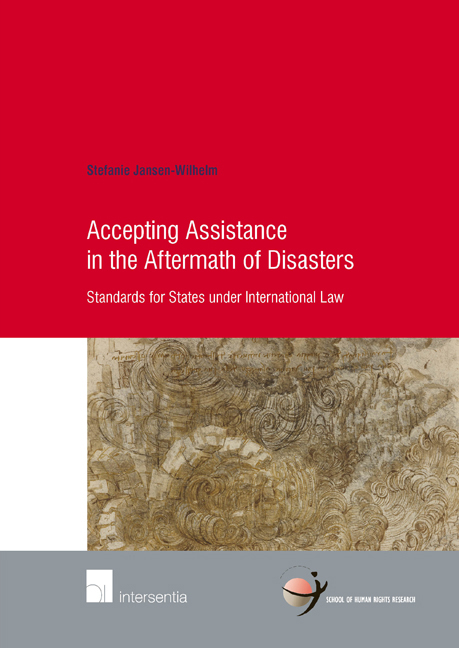Summary
INTRODUCTION
Whenever a disaster occurs, the affected state responds by coordinating and delivering assistance. In situations where the affected state's capacity is overwhelmed, international actors are usually willing to assist. Problems arise when the affected state is unable (or unwilling) to adequately respond to a disaster and refuses to accept international humanitarian assistance. There is no explicit legal framework on humanitarian assistance in disaster response explaining to what extent states should accept international humanitarian assistance. A variety of sources of international law can nonetheless be identified which contain rights, rules and principles on state action after a disaster took place. Within this legal framework, principles of state sovereignty, non-intervention, non-interference and territorial integrity grant the freedom to an affected state to determine which aid is needed after a disaster and to decide which international actors are allowed to cross the borders of its territory to provide assistance.
Considering that the affected population is suffering even more in the aftermath of a disaster when the affected state refuses to accept international humanitarian assistance and does not adequately respond itself and taking into account that the largely scattered legal framework is not helpful here, this research answers the following question:
To what extent does public international law contain standards for affected states determining whether the affected state must accept international humanitarian assistance after the occurrence of a disaster?
To answer this question, the (legal) instruments containing pieces of the puzzle have been analysed resulting in a framework of rules on accepting international humanitarian assistance. These findings have been placed in the light of the practice of disaster response to determine to what extent they constitute clear standards for states. Here it was found that the rules are not concrete enough for this purpose and the International Covenant on Economic, Social and Cultural Rights (ICESCR) has been identified as the most promising solution to this problem. Therefore, it is analysed what standards can be derived from the ICESCR.
Throughout the study, examples of disaster situations have been used to illustrate points made. These cases do not together form a case study.
- Type
- Chapter
- Information
- Accepting Assistance in the Aftermath of DisastersStandards for States under International Law, pp. 211 - 220Publisher: IntersentiaPrint publication year: 2015



